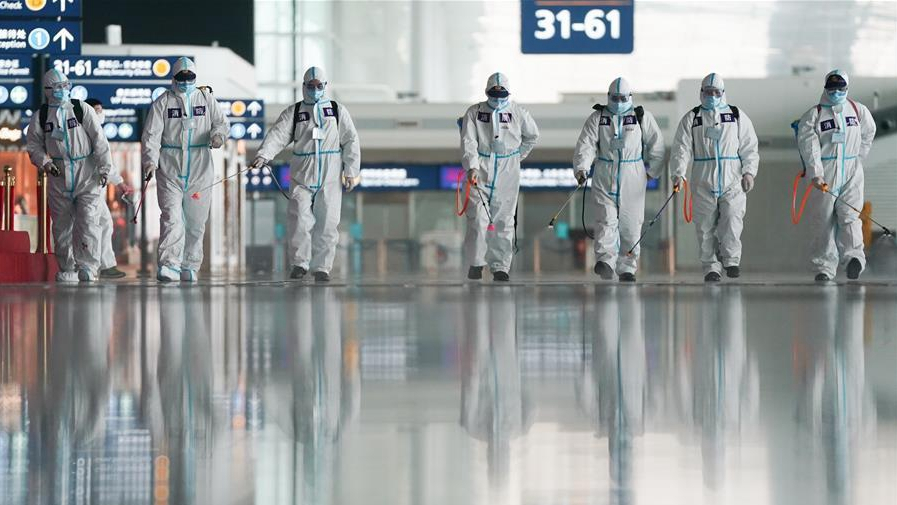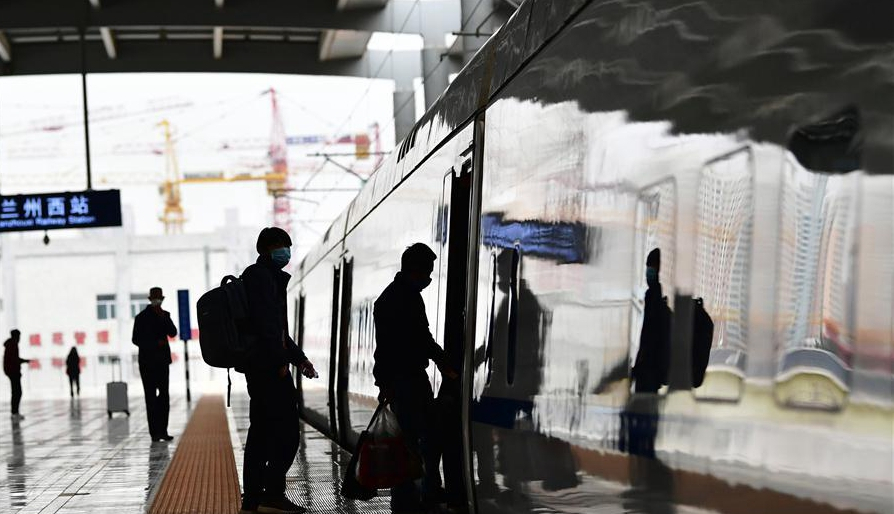
The leading group of China's COVID-19 response on Monday stressed measures to further prevent imported COVID-19 infections through land borders.
The group, led by Premier Li Keqiang, reiterated the principle of early detection, reporting, isolation and treatment, demanding local authorities release relevant information about cases of confirmed, suspected and asymptomatic patients with openness and transparency.
Read more:
China to strengthen management of asymptomatic COVID-19 infections
Premier Li stresses prevention for asymptomatic coronavirus carriers
Noting China's border regions have witnessed an increase in imported cases through land transportation, the meeting stressed measures to target imported cases, asking border areas to do well in emergency preparedness and virus prevention.
It is known that the risk of the virus being imported into China via land borders is increasing and the number of such cases has exceeded those recorded at airports recently.
As of Sunday midnight, a total of 39 new confirmed COVID-19 cases were reported on the Chinese mainland, of which 38 from abroad, according to China's National Health Commission.
Health quarantine at borders should be further strengthened, the meeting said, calling for improving measures and mechanisms for emergency response and routine prevention and control.

Passengers board a train for Urumqi at Lanzhou West Railway Station in Lanzhou, northwest China's Gansu Province, April 1, 2020. /Xinhua
Passengers board a train for Urumqi at Lanzhou West Railway Station in Lanzhou, northwest China's Gansu Province, April 1, 2020. /Xinhua
China will support the border regions to step up their lab test and medical treatment capabilities while toughening port management, quarantine inspections and traffic controls in border areas.
Stricter epidemic control measures will be imposed in economic cooperation centers and trade markets along the border. Efforts will be made to ensure smooth international freight transport on the premise of safety.
The meeting also called for orderly promoting the resumption of work and production while preventing and controlling the epidemic in a scientific and precise manner.
Enterprises and institutions are asked to assume the main responsibility of protecting their employees, and minimize mass gatherings with employees, it added.
Following two months of work to contain the spread of the COVID-19 pandemic, the World Health Organization (WHO) said on Sunday that China has moved into "mitigation stage".
China's experience is helping countries currently at the start of the COVID-19 cycle to plan their responses better, the WHO said in its latest report.
On Monday, China released a timeline of response to the novel coronavirus disease, offering a glimpse of China's efforts in releasing information, sharing epidemic prevention and control experience, and advancing international exchanges and cooperation.
(Cover: Firefighters conduct disinfection at Terminal 3 of Wuhan Tianhe International Airport in Wuhan, central China's Hubei Province, April 3, 2020. /Xinhua)